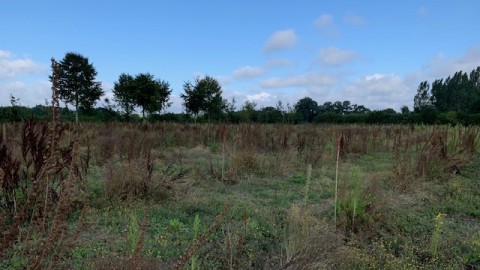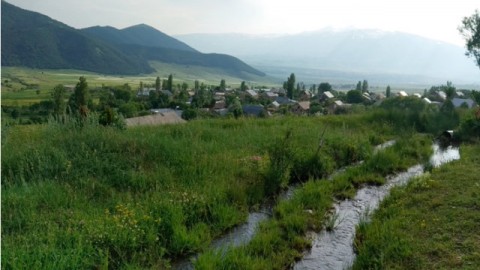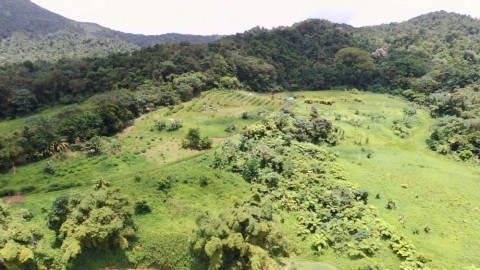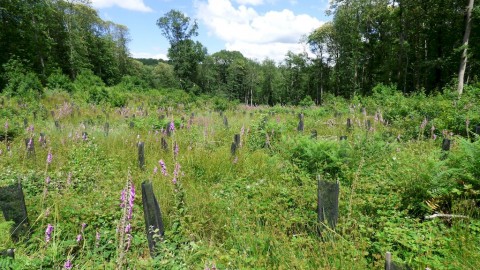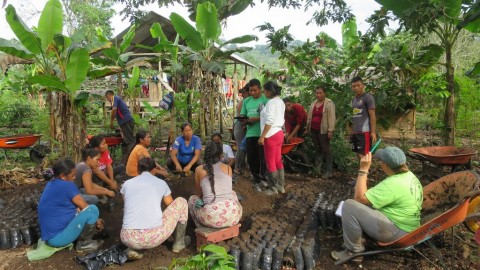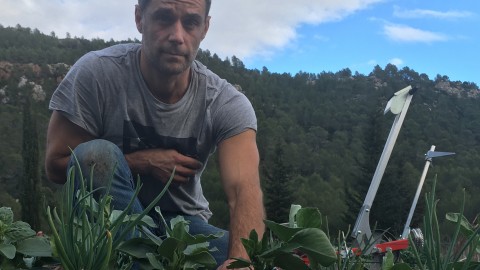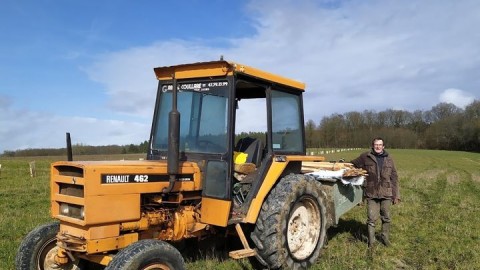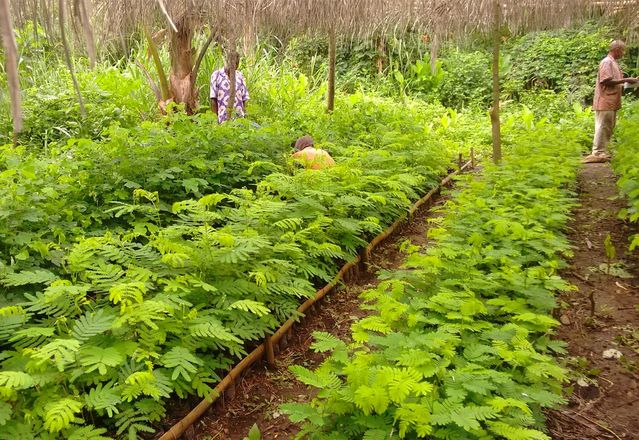
Background & challenges
The main agricultural activities in the village of Tové Banu are growing cocoa, coffee and palm oil; various subsistence crops like yams, bananas and plantains, taro, maize, and manioc; and rearing small breeds of ruminant livestock.
Since the cocoa boom in the region (Togo, Ivory Coast, Cameroon), the forests are receding due to practices like slash-and-burn, which drastically reduce biodiversity. Today, cocoa producers grow a hybrid species in monoculture plantations in direct sunlight.
This approach to crop growing, plus the lack of diversification and the effects of climate change, mean smallholders are heavily dependent on the extremely volatile cocoa markets, which can make it difficult for them to survive.
With APAF – Togo, growers can change their production methods through a sustainable approach combining the planting of fertiliser trees with subsistence crops.
In this village, we plan to plant 600 fertiliser trees plus 10,000 cocoa trees of an old species that is extremely robust and prized for its organoleptic qualities. This approach will guarantee a decent income for families and regenerate the soil at the same time. Together with these quality cocoa trees, subsistence crops will provide food and a source of income from local markets over the short term: ginger, taro, and banana trees.
Project type

Agroforestry and forestry
Beneficiaries

Smallholder families and individuals, groups organised by the village leaders and the Village Development Committee
150 people, 50/50 men and women
Number of trees

10,000 cacao trees and 600 fertiliser trees
Species planted

Cocoa trees: ‘Tete Kwashi’ Forastero
Fertiliser trees planted or through natural regeneration: saman, Albizias stipulata, Terminalias superba, Terminalias ivoirensis, Albizia zygia, Albizia andiathifolia, Albizia ferruginea, Arthrosamanea altissima, Tétrapleura tétraptera, Morinda lucida, Chlorophora exelsa, Ficus gnaphalocarpa
Operator

APAF – Togo
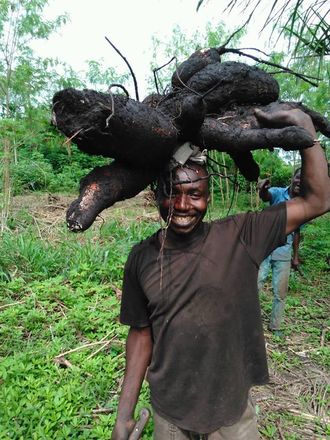
Works timeline
Support for natural regeneration is provided all year round.
For nursery trees:
- November 2018: creating the nursery, including purchasing and potting seeds, installing shade screens to protect the saplings. ‘End of dormancy’ treatment of seeds in November, December, and January
- January 2019: seeds planted
- April 2019: seedlings planted
Operator
Since 1992, through a European-African network, the association for the promotion of fertiliser trees, agroforestry and forestry (APAF) has been promoting an agroecological and agroforestry system in Africa. This cropping approach brings soil back to life and restores biodiversity through the use of so-called fertiliser trees.
The approach brings both soil and biodiversity back to life thanks to fertiliser trees, which the agroforestry methods combine with all types of subsistence (maize, sorghum, yams) and cash (cocoa, coffee) crops. Fertiliser trees enrich, structure and restore the soil.
The methods promoted by APAF will empower smallholders to:
- Sustainably cultivate the same plots of land year after year, from generation to generation
- Increase their income and diversify the sources
- Preserve and rebuild biodiversity
- Preserve and restore forest ecosystems
- Reduce their workload and gain greater independence (women)
The approach takes into consideration traditional practices, the reality of the situation for smallholders and their way of thinking. This means it is rapidly adopted on a large scale thanks to ‘word of mouth’.
Budget
The total sum to be collected amounts to €5,512, i.e. €0.52 per tree planted (average price of a cacao or fertiliser tree).


